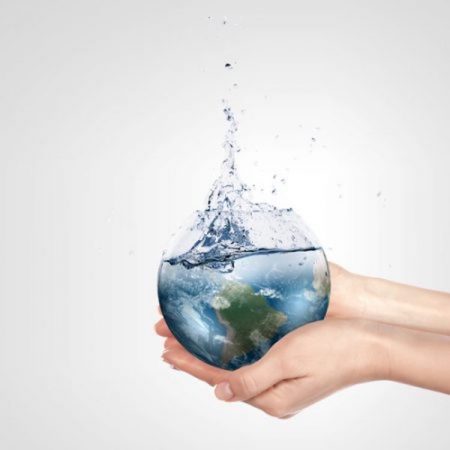
May you give us a normative picture of criticalities about environmental impact of desalination plants?
Criticalities in terms of desalination of sea water are basically three: the first is the fact that salt solution’ dumping, or rather the production’ waste of the plant, isn’t regulated. I explain better: in the Environment Code (Codice dell’Ambiente), decree 152/2006, there are no limits to salt solution’ unloading, this is the reason why is possible to unload this material in industrial amount. We talk of hundred thousands of cubic meters for any plant every year. For any liter of produced potable water, the desalinator plant unloads in the sea 1 cubic meter of waste substance at 60/70%. This means that for each liter of water we consume on earth, more than a one and an half goes on the sea as salt solution, with a double percentage of salt compared with the originating one. That’s the way to create deficits in the ecosystems existing in the areas of dumping, both to the fauna and flora.
The second one is the fact that desalination’ plants aren’t projects to be submitted to environmental impact’ assessment before coming into operation. This is a very clear normative’ gap to be filled.
The third is that does not exist a declared prohibition to unload in the sea, in addition to salt solution, chemical products too, often very dangerous for the environment, used in the plants for the desalination’ process.
Fundamentally the facts under the law’ profile are these: the environment code (codice dell’ambiente) should be surely updated with the new scientific results obtained by different research’ groups verifying the damage to environment produced by the dumping of desalinators.
By your opinion, what are the most important fields to intervene for facing efficiently this kind of situation?
On my opinion is fundamental to fix a limit for uploading of salt solution for all territories: both coastal and smaller islands. Specifically is necessary to foresee that, inside an area of uploading of uploading in an area of 20, 30 or 40 meters of radius, salt solution has not to produce an increase of sea waters’ salinity higher of the 10% compared with original salinity.
Beyond this we should foresee the duty, before installing desalinators, to make an environmental impact’ assessment and an analysis of cost-benefit’ report. In fact, desalinators are often projected for very small islands, where installing these kind of plants is clearly not worthwhile.
What’s your opinion about potentialities of water’ desalination as an instrument to face the hydro crisis?
Nowadays environmental costs, on my opinion, are higher than benefits produced by desalinators. However, if they prepare a more convincing legislation about the upload and a cost-benefits’ analysis on coastal territories, desalinator plants may help to find new sources of hydro supplies. If these structures would be accurately projected, they could help smaller islands.
I’m specifically referring to the use of very long exhaust’ tubing, discharging salt solution in sea areas where there isn’t Posidonia (that is a deep superior than 40 meters of bathymetry), and the declared prohibition to upload chemical products in the sea. Of course the water’ price would feel this effect, but we have to consider, on the other hand, all the environmental costs for community, tied to restoration of damages caused nowadays by indiscriminate uploading.
The requests brought by academic, companies and local administrations world to the attention of Ministry of Environment and legislator, were not adopted by now, but we hope that as soon as possible we’ll have a regulatory intervention to fill this gap.
Per ricevere quotidianamente i nostri aggiornamenti su energia e transizione ecologica, basta iscriversi alla nostra newsletter gratuita
e riproduzione totale o parziale in qualunque formato degli articoli presenti sul sito.

















